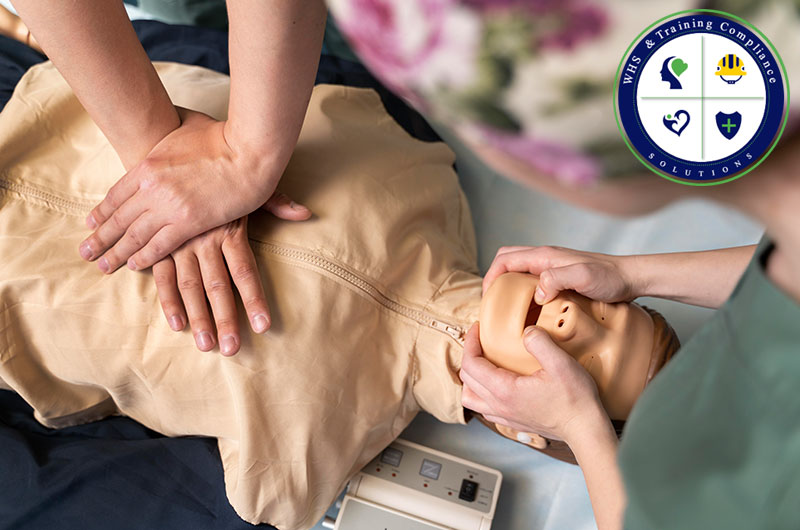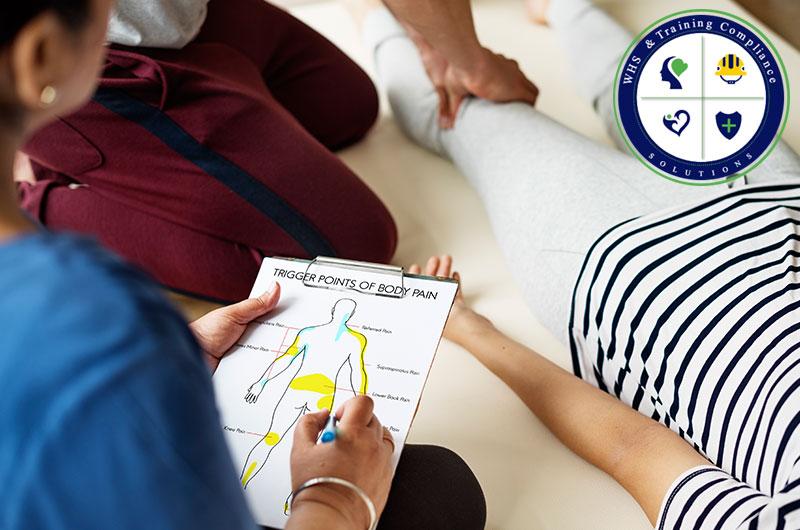The modern world is very fast-paced and challenging, and mental health education is necessary. As an individual wanting to assist loved ones or part of an organisation that has the responsibility of organisational well-being, it is important to understand the appropriate Workplace Health and Safety training options.
The most successful courses are based on practical evidence-based strategies to increase mental health literacy and to provide confidence to act in times of need.
What Is the Use Of Mental Health Training?
Mental illnesses affect millions of people around the world and are becoming acknowledged as a larger concern to both individuals and the community. Mental health training gives an individual the knowledge on how they can assist others in times of emotional hardship, mental disorder, or even during a crisis.
Formal education will help many intervene earlier, thus avoiding more serious problems. Such capabilities are priceless not just at health and community levels but also at the household, school and workplace situations.
MHFA In Awareness
The Mental Health First Aid is referred to as MHFA. It is amongst the most widely known training systems globally to provide education to people on how to support an individual with mental health issues or crises.
The strategy entails identification of signs, offering primary assistance, and linking the individual to professionally led assistance. Notably, MHFA is not associated with diagnosis, and it is used to give ordinary individuals the confidence and compassion to take action.
Important aspects of the Standard MHFA Courses
The standard mental health first aid Australia course is designed for adults supporting adults in both personal and workplace contexts. It targets ordinary conditions like anxiety, depression, psychosis and substance abuse. The course also teaches the ALGEE action plan of Approach, Listen, Give, Encourage professional help, and Encourage self-care, which simplifies the response process so that they can use it easily.
Standard mental health first aid helps break down stigma and builds a supportive network within families, communities, and organisations. It makes more mentally conscious and responsive environments, which are beneficial to all.
Occupational Mental Health
The importance of mental health as an occupational health component has been realised. Adding mental health components to Workplace health and safety training helps protect employees not just from physical harm, but from psychological strain.
The performance and the morale could be affected by stress, burnout or emotional fatigue. Training assists an employer to meet its obligations in the duty of care and also creates a healthy culture at work.
Combining mental health knowledge with workplace health and safety programs ensures teams are equipped to respond to colleagues showing signs of mental distress. It promotes open talks and fast mobilisation of support.
Who Are The Candidates For These Courses?
Mental health training can be of benefit to any person, i.e., managers, educators, parents, community leaders, and peers. Such courses are usually made freely accessible, meaning that the individual needs no prior experience in dealing with mental health.
It may be your wish to support a loved one, respond to a student, or help a colleague during a hard time, but the proper tools and confidence can make a tremendous difference.
Skills And Knowledge That You Will Acquire
The practical skills being taught by mental health courses are:
- Identifying mental illnesses
- Recognising signs of mental illness
- How to react to emotionally suffering people
- Tough conversations
- Being aware of when and how to enlist professional assistance
- Destigmatisation and promotion of discourse
Such results improve personal and professional relationships. What ensues is more effective communication, an increased level of empathy, and a secure and connected environment.
The Delivery Of Courses
The majority of mental health training programs are flexible. Format of delivery is in-person, blended (a combination of in-person and virtual delivery) or fully virtual. This is because these options enable the learners to decide what is better for their schedules and preferences in learning.
Regardless of whether participation is done through professional workplace development or as an individual, the basic content and principles remain the same.
Uses Of Mental Health Literacy
This is the understanding of how an individual can manage their mental health issues and address their concerns. People can gain confidence in providing support and referring Others to the resources they require with sufficient training.
It is also a way that enables them to take and consider their individual emotional well-being. Improved literacy results in early intervention and reduces the possibility of mental health crises in families, at school and at the workplace.
Resilient Organisations
Prevention in mental health is proactive in resilient workplaces. Adapting training to regular learning channels, teams acquire readiness to deal with emotional issues using their self-confidence.
This brings about psychologically safe spaces that allow individuals to express and demand assistance. Training also lowers turnover, maximises engagement and enhances productivity, so it is a well-being investment at both human and organisational levels.
The Correct Course To Select
The following will be taken into consideration when choosing a mental health course:
- Is it up to date and evidence-based?
- Does it contain practically oriented tools such as action plans?
- Is it possible to tailor it to your industry/ workplace?
- Does it promote the long-term development of skills as well as awareness?
Identify initiatives which fit the national mental health strategies and which are known to be of quality, consistent and relevant.
Mental Health Everyone’s Business
Maintaining mental health does not depend on professionals only. Everyone can provide helpful support to a friend, colleague or a stranger in need with the right kind of training.
Being informally supportive or a formal part of a plan, when done with care and understanding, can alter the course of anyone’s life. The correct path would also enable you to lend a helping hand when it is required the most.
Verdict: Informed Decisions
Mental health literacy is one of the strongest steps to create a safer and more humane society and work environment. Courses like Standard Mental Health First Aid Australia provide the tools needed to understand and respond to mental health concerns effectively.
When integrated into Workplace health and safety training, they help create resilient teams that prioritise mental well-being as much as physical safety.













